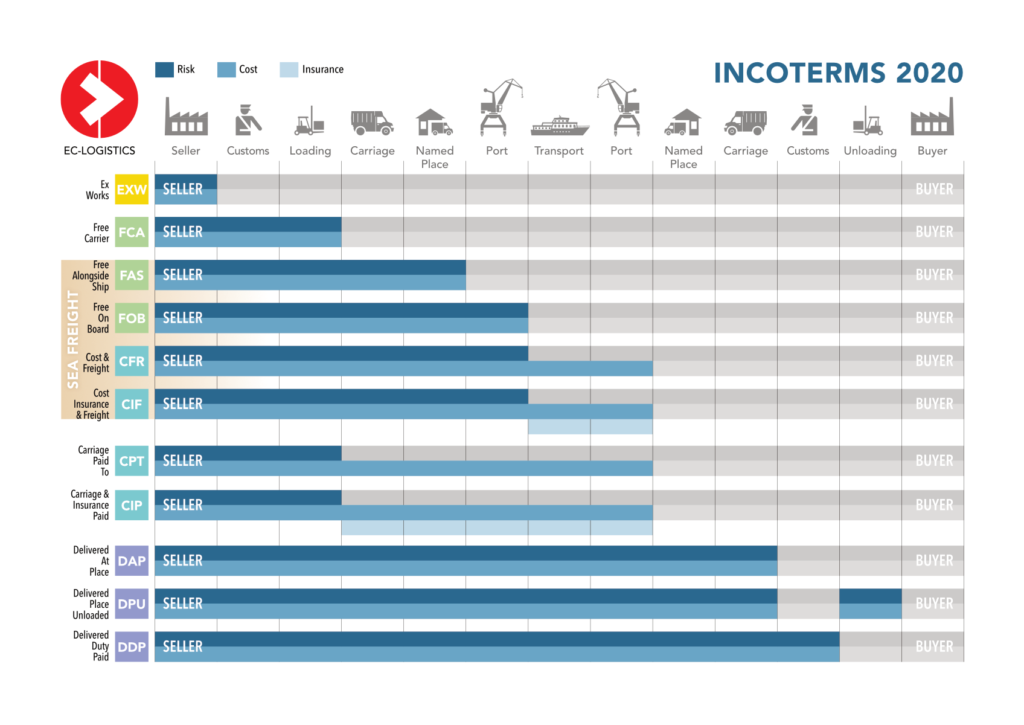Know-it-all
What's new in INCOTERMS 2020
Changes from 2020
From January 1st 2020, a new version of the INCOTERMS rules (already the sixth revision) applies. Here's a summary of the major changes and adjustments they bring.
Greater emphasis on safety
The new rules place greater emphasis on safety-related obligations. Each delivery rule thus shows the seller's obligation to comply with all safety requirements and formalities associated with the transport of cargo to the destination, which may be required by exporting, transit or importing countries. The buyer's obligation to provide cooperation to meet these requirements is also newly regulated.
Issue of consignment note (Bbill of Lading) after loading under FCA condition
In the case of delivery of goods, it is common for one of the parties (or their bank) to require the issue of a consignment note (Bill of Lading) compared to the delivery of the goods. However, the issue of a consignment note may be a problem where the carrier is prohibited by the contract of carriage from issuing the consignment note before the goods are loaded. Under the terms of the FCA (Free Carrier), the delivery of the goods is completed before the goods are loaded free of charge to the first carrier. Therefore, there may be situations where the seller delivers the goods to the carrier, but in return does not receive the consignment note he urgently needs.
INCOTERMS 2020 is already counting on this situation. The FCA's delivery condition now allows the seller and buyer to agree that the buyer will order the carrier to issue a consignment note to the seller. The seller is then obliged to deliver the consignment note to the buyer.
Different levels of insurance under CIF and CIP conditions
In the past rules, CIF and CIP conditions obliged the seller to insure the cost at his own expense at least to the extent of the coverage of the Level C insurance clause. However, according to the new CIP delivery condition, the seller is obliged to insure the expense at least to the extent of the coverage of the Level A insurance clause, which covers all risks not expressly excluded in the insurance contract. The CIP delivery condition is therefore now more advantageous for the buyer.
Change of the name of the DAT delivery term to DPU
The new rules changed the name of the Delivered at Terminal (DAT) delivery terms to DPU (Delivered at Place Unloaded). The purpose of this change is to highlight the fact that the destination can be any place and not just a 'terminal'.
Consideration of the possibility of transport by own transport unit (FCA, DAP, DPU, DDP)
INCOTERMS 2010 assumed that a third independent party would always be used to transport goods from seller to buyer. However, the new conditions already count with the situation that the transport of goods can be carried out by the buyer or seller himself (for FCA, DAP, DPU, DDP).

